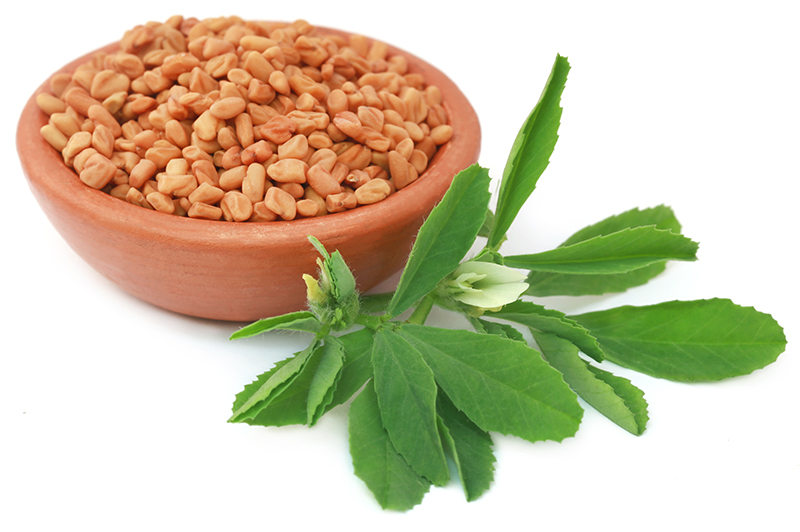What is Fenugreek?
Fenugreek, scientifically known as Trigonella foenum-graecum, is a herb native to the Mediterranean region, southern Europe, and western Asia. It is an annual plant, typically growing to about two to three feet tall, with green leaves, small white flowers, and pods that contain small, golden-brown seeds. These seeds are the most commonly used part of the plant and are renowned for their distinctive, slightly bitter taste, resembling maple syrup.
Fenugreek has been used for centuries in cooking, medicine, and as a dietary supplement. Its seeds are often found in spice blends, particularly in Indian cuisine, where they are a key ingredient in curry powders and pastes. The plant leaves are also edible and used in various culinary dishes in fresh and dried forms.
Benefits of Fenugreek
Fenugreek is more than just a flavorful addition to food; it also offers a range of health benefits. Here’s a look at some of the key advantages:
- Digestive Health: Fenugreek is rich in fiber and has been traditionally used to treat digestive issues, such as constipation and indigestion. Its high fiber content helps promote regular bowel movements and improve overall gut health.
- Blood Sugar Control: One of the most well-known benefits of fenugreek is its ability to help regulate blood sugar levels. Studies have shown that fenugreek can improve insulin function, making it beneficial for people with diabetes. The seeds contain soluble fiber, which slows the absorption of carbohydrates and sugars, leading to more stable blood sugar levels.
- Lactation Support: Fenugreek has been used for centuries as a galactagogue that increases milk production in breastfeeding women. Lactation consultants often recommend it to help mothers who struggle with low milk supply.
- Anti-inflammatory Properties: Fenugreek seeds contain compounds such as flavonoids and alkaloids that have anti-inflammatory effects. These properties make fenugreek useful in managing arthritis and other inflammatory diseases.
- Heart Health: Fenugreek may also benefit cardiovascular health. The herb has been shown to reduce cholesterol levels, particularly LDL (bad) cholesterol, while increasing HDL (good) cholesterol. This balance can help reduce the risk of heart disease.
- Weight Management: The fiber in fenugreek seeds can also aid in weight management by promoting a feeling of fullness and reducing appetite. This can be particularly helpful for those looking to control their calorie intake.
What Forms Does Fenugreek Come In?
Fenugreek is available in several forms, each suited to different uses:
- Seeds: The most common form of fenugreek is used in cooking, teas, and as a supplement. They can be used whole, ground into powder, or sprouted.
- Powder: Fenugreek powder is made from ground seeds and is often used as a spice in cooking or as a supplement. It can be added to smoothies, soups, or sprinkled on food.
- Capsules and Tablets: Fenugreek is available in capsule and tablet form for those who prefer the convenience of a supplement. These are commonly used for health, such as blood sugar management or lactation support.
- Tea: Fenugreek tea is made by steeping the seeds in hot water. This form is often used for digestive issues or as a natural remedy for sore throats.
- Extracts and Tinctures: These concentrated forms of fenugreek are typically used in herbal medicine. They are made by extracting the active compounds from the seeds using alcohol or another solvent.
- Fenugreek Leaves: Both fresh and dried fenugreek leaves are used in cooking, particularly in Indian and Middle Eastern cuisine. The leaves have a milder flavor than the seeds and are often used in curries and stews.
Historical Uses of Fenugreek
Fenugreek has a long history of use in traditional medicine and cooking. Ancient Egyptians used fenugreek seeds in the embalming process and as a treatment for burns and other skin ailments. The Greeks and Romans also recognized its medicinal properties and used it to treat various ailments, including respiratory and digestive disorders.
Traditional Chinese medicine uses fenugreek to treat kidney problems, relieve abdominal pain, and improve libido. Similarly, in Ayurveda, the ancient system of medicine in India, fenugreek is used as a remedy for many conditions, including diabetes, joint pain, and digestive issues.
Fenugreek has also been used as a livestock feed, and its seeds have been found in the tombs of ancient Egyptian pharaohs, indicating its value in ancient times.
Fenugreek: Delicious and Useful
Fenugreek is a useful herb with many benefits. From its origins in the Mediterranean and Asia to its modern-day use in cooking and medicine, fenugreek has stood the test of time as a valuable plant. Whether looking to improve digestion, regulate blood sugar levels, or support lactation, fenugreek offers a natural solution. As more research continues to uncover the potential health benefits of fenugreek, this ancient herb remains a relevant and powerful tool for maintaining health and well-being.


Use Coupon Code: FREE
*Sorry, coupons can't be combined.